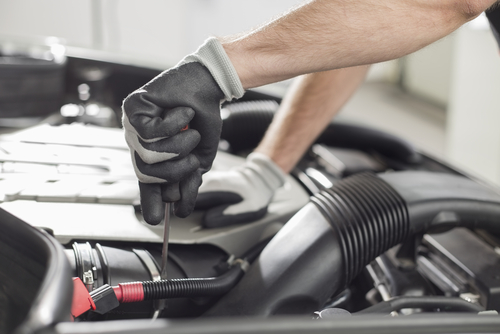The Evolution of European Car Engines Over the Years

The automotive industry has witnessed significant advancements in technology and engineering over the years, leading to the evolution of car engines in Europe. From the early days of combustion engines to the introduction of electric powertrains, European car manufacturers have been at the forefront of innovation in engine design. In this blog post, we will explore the evolution of European car engines over the years, highlighting key milestones and advancements that have shaped the automotive landscape in Europe.
Early Combustion Engines: The Birth of the Automotive Industry
The history of European car engines dates back to the late 19th century when the first combustion engines were developed. German engineer Karl Benz is credited with inventing the first practical automobile powered by an internal combustion engine in 1885. This groundbreaking invention laid the foundation for the automotive industry and marked the beginning of a new era in transportation.
Over the following decades, European manufacturers such as Mercedes-Benz, BMW, and Fiat continued to innovate and develop combustion engines that were more powerful, efficient, and reliable. These early engines were typically small displacement, inline configurations with simple carbureted fuel systems. Despite their limitations, these engines paved the way for further advancements in engine technology.
The Rise of Diesel Engines: Efficiency and Power
In the early 20th century, European car manufacturers started experimenting with diesel engines as an alternative to gasoline engines. Diesel engines offered greater fuel efficiency and power output, making them ideal for commercial vehicles and long-distance transportation. German manufacturer Mercedes-Benz was one of the pioneers in the development of diesel engines, introducing the first diesel-powered passenger car in the 1930s.
The popularity of diesel engines continued to grow in Europe throughout the mid-20th century, with manufacturers such as Volkswagen, Audi, and Peugeot offering diesel-powered vehicles in their lineup. Diesel engines became known for their torque-rich performance, durability, and fuel efficiency, making them a popular choice for drivers looking for long-lasting and economical engines.
Turbocharging and Forced Induction: Boosting Performance
In the 1970s and 1980s, European car manufacturers began incorporating turbocharging and forced induction technology into their engines to boost performance and efficiency. Turbocharged engines use a turbine-driven turbocharger to compress air and increase the engine’s power output. This technology allowed manufacturers to extract more power from smaller displacement engines, improving performance while meeting stricter emissions standards.
Legendary models such as the Audi Quattro, BMW M3, and Lancia Delta Integrale showcased the potential of turbocharged engines in rallying and high-performance driving. These vehicles were equipped with advanced turbocharged engines that delivered impressive horsepower and torque figures, setting the standard for future performance cars in Europe.
Hybrid and Electric Powertrains: Embracing Sustainability
In recent years, European car manufacturers have shifted their focus towards sustainability and emissions reduction by introducing hybrid and electric powertrains in their vehicles. Hybrid engines combine an internal combustion engine with an electric motor to improve fuel efficiency and reduce emissions, providing drivers with the best of both worlds in terms of performance and efficiency.
Electric vehicles (EVs) have also gained popularity in Europe, with manufacturers such as Tesla, Renault, and Volkswagen leading the charge in this fast-growing segment. Electric cars are powered by electric motors and batteries, offering zero-emissions driving and instant torque delivery. The introduction of EVs has revolutionized the automotive industry and provided consumers with eco-friendly alternatives to traditional combustion engines.
